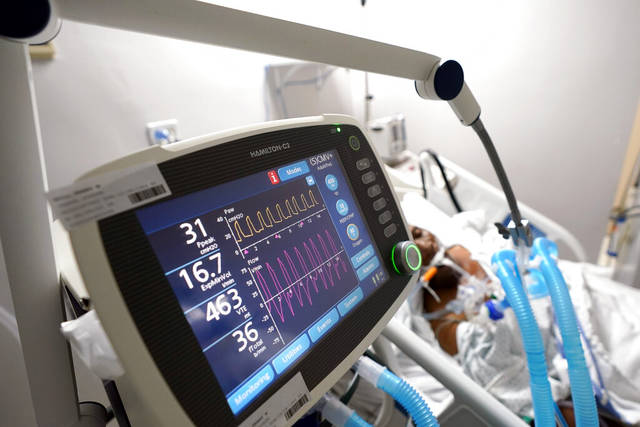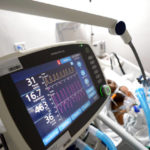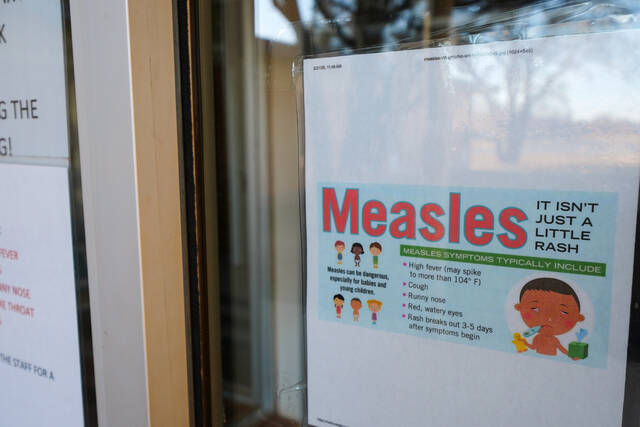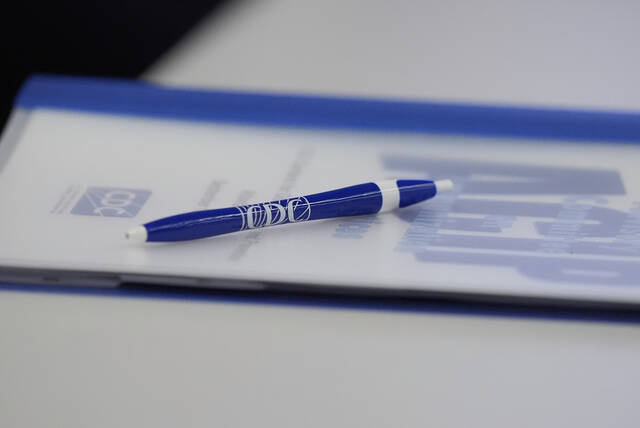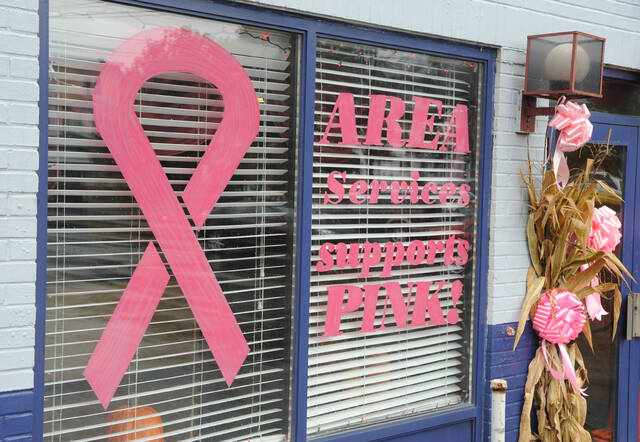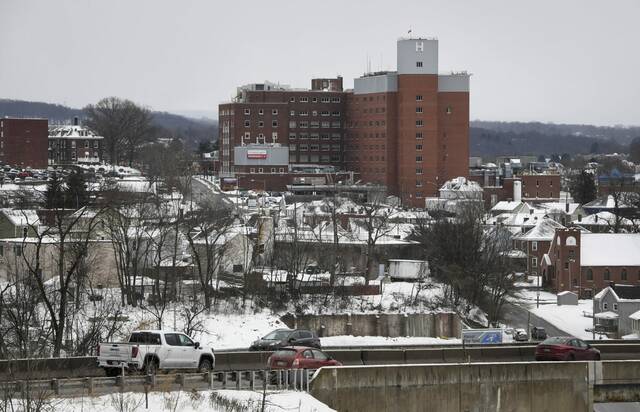An international study led by scientists at UPMC and the University of Pittsburgh School of Medicine found that inexpensive steroids improve outcomes of severely ill covid-19 patients. The World Health Organization has updated treatment guidance in reaction to the study.
The findings were published Wednesday in the Journal of the American Medical Association as part of a four-article package. The Pitt and UPMC trial is one of seven randomized clinical trials evaluating three steroids in more than 1,700 patients. An analysis of the data pooled concludes each of the corticosteroids studied reduces mortality.
When it comes to patients who must be ventilated, the steroids can relieve inflammation around the lungs, the site of the covid-19 infection, said Dr. Christopher Seymour, one of the paper’s co-authors. Seymour works in critical care medicine for UPMC and Pitt.
In the trial led by UPMC and Pitt, Seymour said clinician-scientists monitored covid-19 patients who were receiving organ support, noting their mortality rates, whether they needed to stay in intensive care and if they were able to go off organ support within a 21-day window. The trial studied 121 hospitals in eight countries and a total of 403 covid-19 patients, who received the steroid hydrocortisone or no steroids at all. The trial found a 93% probability it would improve patient outcomes.
UPMC’s trial was the only U.S.-based trial to test corticosteroids treatment for critically ill patients, according to a news release. Analysis from the data collected, combined with the six other trials, reinforces the results of a June trial conducted in the United Kingdom. That trial found the steroid dexamethasone reduced covid-19 deaths by 29%.
“It is relatively rare in medicine that you find drugs where the evidence of their effectiveness in saving lives is so consistent,” said lead author Dr. Derek Angus, chief health care innovation officer at UPMC and professor and chair of the Department of Critical Care Medicine at Pitt. “This is, in many respects, the single clearest answer we’ve had so far on how to manage terribly ill covid-19 patients. People on ventilators or oxygen and under intensive care should definitely be given corticosteroids.”
UPMC’s trial did not test the corticosteroids in nonhospitalized covid-19 patients who didn’t need respiratory support. Steroids aren’t recommended for these patients because they can dampen the immune system and have serious side effects, including alterations in blood glucose and delirium, Seymour said. Though the paper notes the side effects witnessed in the trial, Seymour said they were generally minor among those who were critically ill.
Seymour said the anti-inflammatory properties of steroids are imprecise, comparing them to a “hammer instead of a pinprick.”
The REMAP-CAP platform also relies on patient enrollment from “resource-rich countries,” mostly in North America, Europe and Australia. As a result, the findings may not translate to low- or middle-income countries. Still, the WHO is now recommending the treatment worldwide.
In the past six months of the pandemic, numerous treatment theories for covid-19 have made headlines — either for being promising or for being misguided.
“There are thousands of treatments that are proposed for this new disease,” Seymour said, from toxic agents to complex stem cell infusion techniques.
The findings of this trial are significant, he said, because of the wide accessibility and inexpensive cost of steroids. They can be administered almost anywhere for patients in need.
Still, noting that the mortality for these critically ill patients had dropped significantly, Seymour said it remained high. It’s likely that a “cocktail” of treatments is necessary to save patients from the disease, he said. The next question, therefore, will be what treatments should be given in combination with corticosteroids.
“That’s where the science is headed,” Seymour said.



